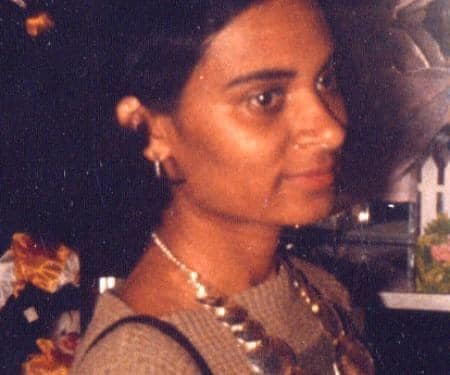Mahadai Das was a Guyanese poet. She was born in Eccles, East Bank Demerara, in 1954. She wrote poetry from her early school days at Bishop’s High School, Georgetown. She did her first degree at the University of Guyana and received her B.A. in philosophy at Columbia University, New York, and then began a doctoral programme in Philosophy at the University of Chicago.
She was a dancer, actress, teacher and beauty queen, served as a volunteer member of the Guyana National Service around 1976 and was part of the Messenger Group promoting ‘Coolie’ art forms at a time when Indo-Guyanese culture was virtually excluded from national life.
She was one of the first Indo-Caribbean women to be published. She has written poetry explicitly relating to ethnic identity, something which contrasts her with other female Indo-Caribbean poets. Another theme in her writing is the working conditions in the Caribbean islands.
Her first poetry collection was entitled I Want to Be a Poetes of My People (1977) and it includes “They Came in Ships” and “Militant.” Das is known for being among the first published Indo-Caribbean women poets who discussed feminism, identity, and cultural reshapings. In “I Want to be a Poetess of my People” Das speaks of her Indian heritage within a Caribbean environment, yet speaks little of her experience as a woman in this environment.
Her second work, “My Finer Steel Will Grow”, attempts to reconcile the individual with the political with regard to gender. She speaks out about the discrepancy in fighting with men for racial equality, only to be suppressed by those same men in regards to gender. “Bones” explores her changing individual female identity but only in two or three poems incorporates her Indian heritage within this identity. (Peepal Tree Press)
Necessary to illustrate the Coolitude poetics, Mahadai Das expands a national consciousness of longing, loss, and labor in her famous poem “They Came In Ships.” The main work of this poem is not one of lamentation; rather, it seeks to galvanize both Afro-Guyanese and Indo-Guyanese alike by making parallels of labor while acknowledging and respecting the differences in material conditions during the crossing of the Atlantic. This poem is of national unity through its use of a poetic: separation as a new diasporic poetic.
Das begins her poem on the ship that arrives to Guyana:
They came in ships
From far across the seas
Britain colonising the East in India
Transporting her chains from Chota Nagpur and
the Ganges Plain
Westward came the Whitby
Like the Hesperus
Alike the island-bound Fatel Razack….
Unfortunately, Das passed away in 2003 at only 49 years old, from illness relating to cardiac arrest suffered 10 days before her death. Das’s work continues to circulate and make waves in the Indo-Diasporic literary field.

































































